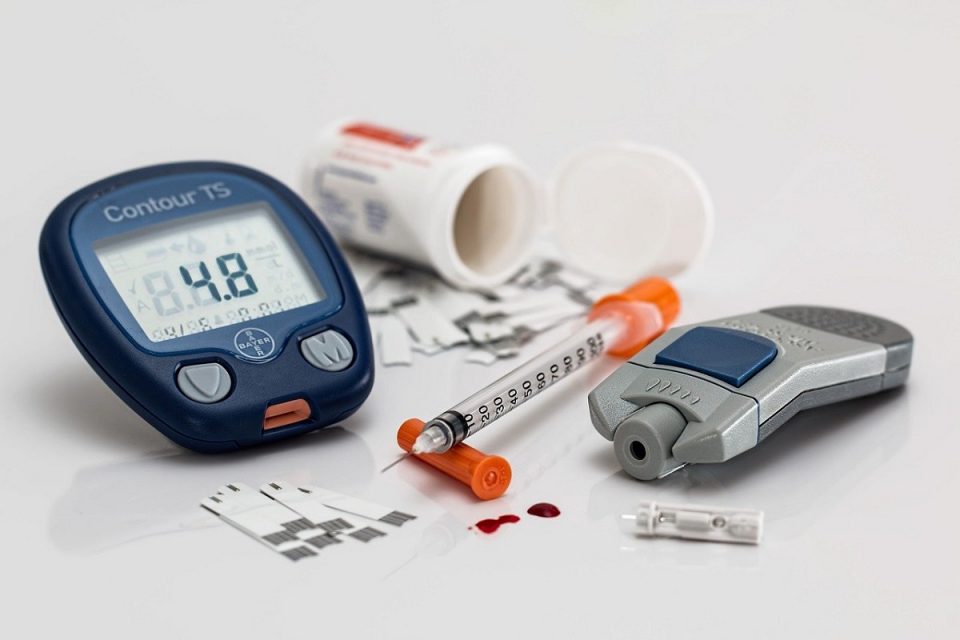10 Important Tests For Diabetes
Share0
Important Tests For Diabetes
If you experience signs of frequent urination, increased thirst, inexplicable weight reduction, amplified appetite, and sense a tingling feeling in your feet or hands, odds are that you are actually a diabetic. You can confirm it by using the tests mentioned here.
The signs and effects of diabetes appear suddenly and are normally the explanation behind examining glucose levels. As the symptoms of prediabetes and diabetes emerge more gradually, the consequences might not be obvious to you. The ADA [American Diabetes Association] has laid down certain particular screening rules. People who are above the age group of 45 should get their blood tested, and if they get normal results, he/she should be screened once every three years.
Any person who has a body mass index that is more than 25, additional risk components such as hypertension, someone who has PCOS, high cholesterol levels, a history of coronary illness or has a family member with diabetes should undergo the following tests to determine whether they have diabetes or not.
Table of Contents
HbA1C
This particular blood test presents your normal glucose level for nearly 90 days. It computes the rate of glucose attached to haemoglobin and the protein that transmits oxygen in your red blood cells. The higher the levels, the more haemoglobin you have with sugar connected to it. If your A1C level is around 6.5 percent or even higher on two individual tests, then you may have diabetes. If your A1C is roughly around 5.7 and 6.4 percent, it shows that you have prediabetes. If the hba1c test result shows 5.7, it is considered normal.
Fasting blood sugar test
In this specific test, your blood sample is collected subsequent to an overnight fast. If your blood sugar level is below 100 mg/dL, then it is normal. If it ranges from 100 to 125 mg/dL, then it is deemed prediabetes. If the level is around 126 mg/dL or higher on two individual tests, you definitely have diabetes.
CBC test [Complete Blood Count]
This blood test is utilized to assess an individual’s general health and find out a wide variety of disorders, ranging from leukaemia to anaemia. The CBC test helps measure various features and components of your blood, that normally includes haemoglobin, the protein present in red blood cells that transmits oxygen, white blood cells, oxygen carrying red blood cells, Hematocrit, the ratio of plasma present in your platelets and blood that generally aid with clotting blood.
Any unusual increase or decrease in the cell counts as shown in a CBC test might signify that you may have an underlying health condition that needs to be identified further.
PPBS [Post Prandial Glucose Test]
This blood glucose test helps determine the measure of a specific type of sugar [glucose]. Glucose is measured in your blood, especially after a meal. Normally, blood glucose levels rise slightly after you consume a meal. This expansion triggers your pancreas to release insulin, which assists your body in pushing out glucose from your blood and storing it for offering vital energy to your body. People with diabetes might not create or respond legitimately to insulin, which leads to a boost in their blood glucose levels. High levels can severely harm the nerves, eyes, kidneys, and veins.
A 2-hour test calculates blood glucose exactly 2 hours after consuming a meal. By this time glucose has usually gone down in healthy folks, yet it may be raised in persons with diabetes. It acts as a trial for whether a person might have diabetes, or whether the person who has diabetes is efficiently controlling their levels.
Cholesterol test
Diabetes severely increases the threat of heart disease in a person, which makes it obligatory for them to take a blood test to help screen their cholesterol levels regularly. It is necessary to check whether the levels are within the range or not.
Triglycerides
Triglycerides are a type of fat that is naturally found in your blood. When there is a boost in triglyceride levels, it enhances the threat of coronary artery disease, particularly in women. The triglyceride levels of an individual are evaluated with a blood test and testing cholesterol levels as well. Standard triglycerides are beneath 150. Levels over 200 are high.
Usually the triglyceride level of an individual increase due to the following reasons;
- Lack of exercise
- Being overweight
- Alcohol
- Excessive smoking
- Genetic disorders
Triglyceride levels might be lowered with a mixture of lifestyle changes such as;
- Healthy diet
- Losing weight
- Regular exercise
Creatinine blood test
This test helps estimate the level of creatinine present in your blood. It is a waste thing that forms when creatine separates. Creatine is naturally found in the muscle. Creatinine levels can offer your medical specialist data regarding how well your kidneys are working.
Electrolytes
This blood test helps assess the main electrolytes in your body which includes potassium, sodium, bicarbonate [CO2] and chloride. It can be utilized to assess symptoms of heart disease and check the effectiveness of treatments for kidney disease, heart failure and high blood pressure, heart failure.
IAA [Insulin Auto Antibodies] test
This test helps find out the antibodies that target insulin. Besides attacking beta cells, the immune system of people who have type 1 diabetes targets insulin as well.
C-Peptide
This specific test evaluates how much C-peptide is present in your blood. As the levels of the peptide normally match the insulin levels in your body, the test is mainly utilized to point out how much insulin your body is creating. Usually, Low levels of insulin and C-peptide indicate the presence of type 1 diabetes.
